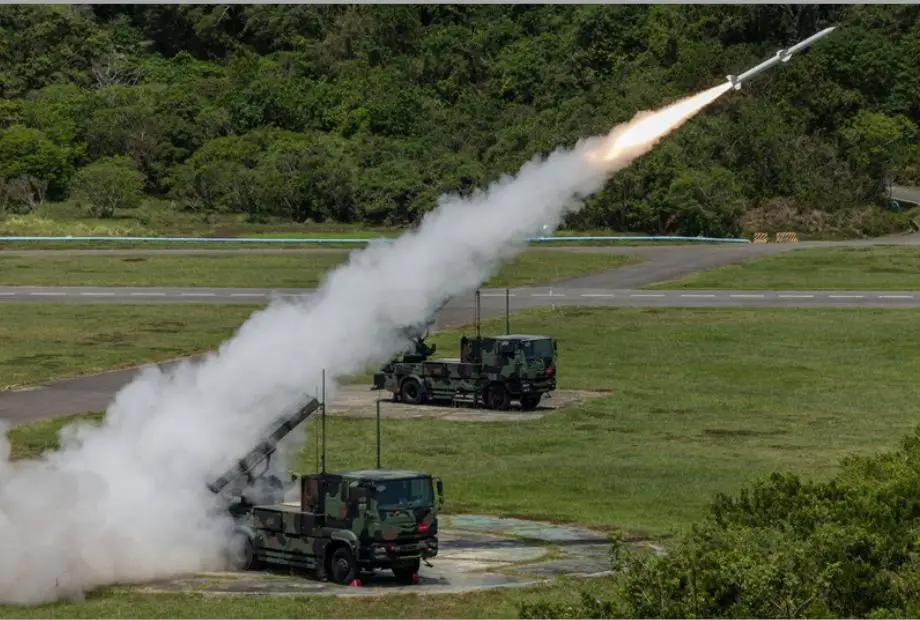Breaking news
Taiwan develops and tests new home made interceptor system called Tien Chien II.
A surface-launched version of Taiwan's indigenously-developed Tien Chien II (TC-2) missile passed a test-firing Monday during its debut in a missile defense drill in Pingtung County, according to a source in the military, spread on April 16, 2024, by Taiwan's Military News agency.
Follow Army Recognition on Google News at this link

Fire test of Tien Chien II (Picture source Tawian's Military news Agency )
Four of the TC-2 missiles were fired and hit predetermined target drones at a distance of 10 kilometers during the live-fire exercise at Jiupeng Base, operated by the state-owned weapons developer National Chung-Shan Institute of Science and Technology (NCSIST), according to the source.
The drill was delayed until April 15 from April 9 due to weather conditions, a report delivered before the drill to the Legislature by the Army indicated that one of the missiles launched would be tracked by radar to test its radar-homing feature.
The surface-launched version of the TC-2, also known as the "field combat air defense system," was developed by NCSIST. It was delivered to the Republic of China (ROC, Taiwan's official name) Army in May 2023 and replaces outgoing MIM-72A/M48 Chaparral surface-to-air missiles. The surface-launched TC-2 variant consists of a launch platform, a car-mounted array radar system, and a missile vehicle and is controlled by a command post vehicle, the source said.
The TC-2 variant has a range of 15 kilometers and, with the help of the vehicles, is capable of 360-degree reconnaissance and surveillance, allowing it to be deployed against rotary-wing and fixed-wing aircraft, drones, and cruise missiles, they said. The NCSIST plans to test the field air defense weapons system once a year in live-fire exercises, they said.
Kuomintang (KMT) Legislator Chen Yeong-kang, a retired Navy admiral, said in response to media queries in Taipei Monday that the TC-2 air-to-air missiles have spawned the TC-2N ship-launched and field combat air defense variants, the latter of which is "very effective" at bolstering the Army's ground defenses.
The missile should be deployed in combination with the country's other air defense systems to more effectively serve its purpose, Chen said.
Richard Hu, deputy director of Taiwan Center for Security Studies, said the missile's range means that it will fortify a traditionally weak area of defense for the Army. However, Hu noted that despite its car-mounted configuration, the field combat air defense system is not ideal for providing reinforcements across theaters of operations because that would expose them to enemy satellites, leaving them vulnerable to attacks by fighter jets, drones and missiles.
Defense News April 2024



















